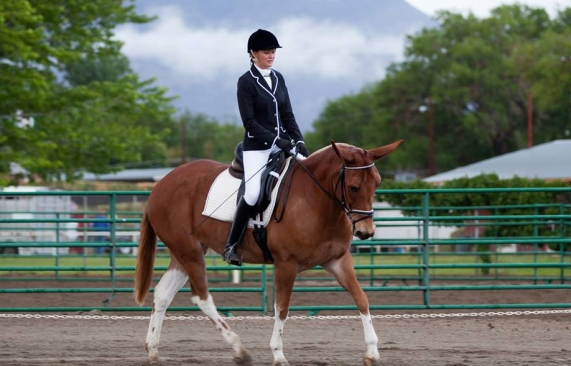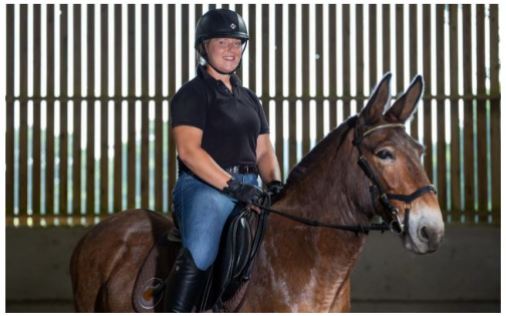BY DEBORAH JANE NICHOLAS
Horses must be more popular with equestrians because they are intelligent, elegant, and for the most part, we think we understand them. If you don’t own a horse, then I can bet you know someone that does. Therefore this specific equine is at least familiar to all of us. Whereas if I was to ask 10 people what they know about mules and donkeys I would hear little about their history, capabilities or intelligence. In fact those 10 blank faces would probably mention terms such as stubborn or even beasts of burden.
It may surprise some people to know that in terms of brain size, intelligence and training capabilities mules are exactly the same as horses. Mules understand pressure, release, comfort and reward. As an equine they are again exactly the same as horses in terms of versatility, herd instincts, psychology, defences and hierarchical dynamics. The same is also true for donkeys.
All of our equines have a rich history here in Great Britain, utilised during military campaigns, farming, country sports, travel and leisure. Yet for some reason horses seem special, or at least more popular. Horses are not more special than mules and donkeys, they just look slightly different. Yet compare a Hanoverian to a Clydesdale, or a Welsh Section A to a Welsh Section D, the differences in appearance are extremely noticeable!
So let’s just assume I have changed everyone’s misconceptions regarding mules, and people rush out to purchase and own one. You’re going to have some great hacks, and join your friends to compete at low level competitions. But on the off chance you’re a great trainer, and wipe the floor with your competitors… until this week you’d get no further. You and your talented mule would have had to just shuffle off and stay out of sight, thank you very much! Not my rules, but those of the officials from British Dressage.
Could this have been snobbism, even bordering on equine racism? If there were a bus full of equines, and no available seats, would the mule have to give up its seat to a horse? Would it cause outrage if Judy the Livery Snob achieved 62% on her test and Wallace the mule beat her with 74%? Will Judy keep quiet at the village fete when asked how her competition went…or actually admit she got her ass kicked by a mule?
It would seem the USA have been less draconian when it comes to hard and fast rules on what may define an equine, by changing the rules to allow mules to compete in dressage in 2004. In fact, as it turns out, mules do exceptionally well in dressage. It will not be news to owners in the USA that mules are talented and extremely versatile.
Heart B Dyna ridden by Laura Hermanson

Picture Credit: Mules and More Magazine
Mules could make a comeback in this country if they were given the chance, and I have no doubt at all that whatever a horse can do, so can a mule. Wallace The Great has been in the news this week, owned by up and coming competitor Christie McLean. Wallace’s history is a tragic tale of neglect before being rescued by the Donkey Sanctuary and finding a permanent home with Christie. He has already proven himself to be intelligent (and very forgiving considering his past) and able to learn quickly, by coming third after just one month of low level competing. But unless the officials at British Dressage decided to throw out these antiquated rules, Wallace would never climb the ranks or qualify for a championship.
Wallace The Great and Christie McLean

So what for the British Dressage position to date?
I’m not sure if it is equine racism or snobbism, but I am largely leaning towards ignorance. Many owners struggle with even basic training i.e. teaching their horse to stand at the mounting block, picking up a hoof, leading and catching. Mainly because people in this country concentrate on riding skills over groundwork skills, when there should be a balance of both. So perhaps if those owners struggle to understand the basic training of a horse, they think a mule or donkey would be more challenging. As said, ignorance of equines as a whole. Yards should be full of not just horses but also donkeys and mules. They should be ridden, driven, competed, loved and celebrated just as much as the horse.
British Dressage – this week by letting Wallace the Great compete, you have changed all our perceptions of you and the mule. The mule not be seen as a beast of burden, but as a versatile and intelligent animal that deserves a chance in the spot light.
Don’t waste it.


